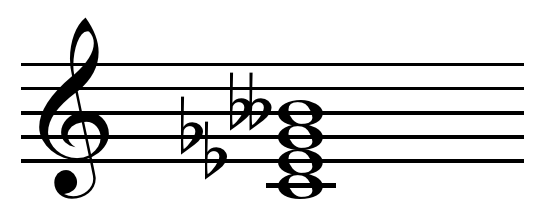A Diminished 7th Chord is similar to a Dominant 7th chord in two ways: It is made up of 4 notes, and it contains a 7th (a diminished one, which is actually a major 6th - mind blown).
That is where the similarity ends, because they don't sound the same, and they are not built in the same way.
The way we build a Diminished 7th chord is as follows:
Simple version:
Step 1: Get a triad (root, 3rd, 5th)
Step 2: squeeze the 3rd and 5th down a semitone each (root, 2ndandahalf, 4thandahalf)
Step 3: stick a 6th on the top.
I know, right? Not the most logical order of events.
The actual "pattern" for the mathematically minded people among us is Root, ♭3, ♭5, ♭♭7 (aka a major 6th)
So to build a C diminished 7th chord you would do this:
|
Degree of chord/scale
|
Application of ♭’s?
|
Resulting note
|
Enharmonic equivalent
|
|
|
Root
|
C
|
None required
|
C
|
C
|
|
3rd
|
E
|
Add one ♭
|
E♭
|
D#
|
|
5th
|
G
|
Add one ♭
|
G♭
|
F#
|
|
7th
|
B
|
Add two ♭’s
|
B♭♭
|
A
|

In Popular Music, it would be expressed as Cdim7 but there is a shorter version: Co7
This is the way many Classical musicians studying harmony or using symbol shorthand to compose will opt for. If you get to Uni and see that little "o" in a chord context, it stands for Diminished.
No comments:
Post a Comment
All comments will be moderated.